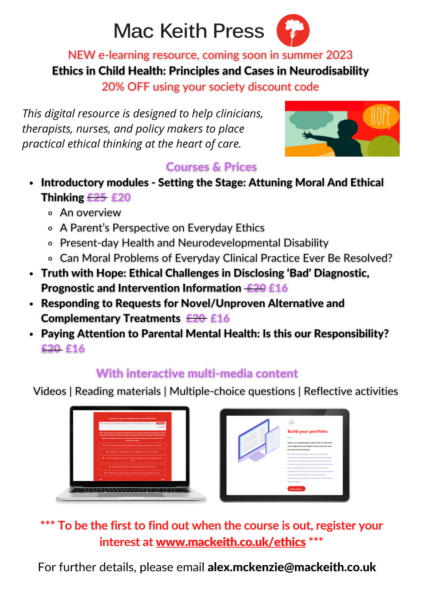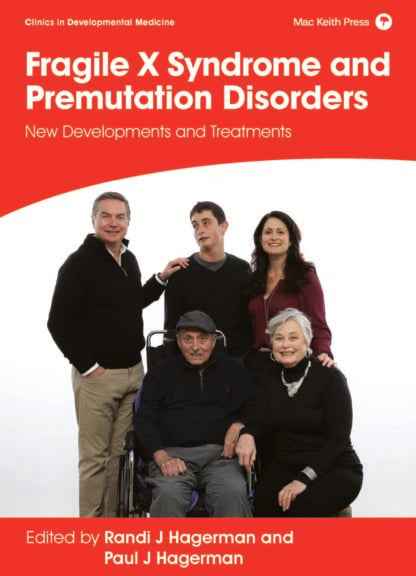
Update from Developmental Medicine & Child Neurology – July 2023
Mac Keith Press July 2023 Highlights
COMING SOON! NEW ONLINE LEARNING
Ethics in Child Health: Principles and Cases in Neurodisability
20% off for AusACPDM members (email alex.mckenzie@mackeith.co.uk)

Special Offer for Fragile X Awareness Month
 We’re honouring Fragile X Awareness Month by offering 50% OFF Fragile X Syndrome and Premutation Disorders: New Developments and Treatments. Published in 2021, this book offers current, multidisciplinary, and international insights into providing the best possible care for patients with Fragile X. The offer applies to digital and print copies alike and ends on 31st July.
We’re honouring Fragile X Awareness Month by offering 50% OFF Fragile X Syndrome and Premutation Disorders: New Developments and Treatments. Published in 2021, this book offers current, multidisciplinary, and international insights into providing the best possible care for patients with Fragile X. The offer applies to digital and print copies alike and ends on 31st July.
DMCN August Issue
A state-of-the-art review on the effects of endocrine-disrupting chemicals on development stresses particular sensitivity in fetal life, calling for more restrictive use of those agents to prevent human exposure during sensitive phases of brain development. A scoping review highlights that cognitive behavioural therapy can be adapted for individuals with cerebral palsy – but more studies are required to assess its effect. A systematic review identified 10 tools to assess chronic pain in children and adults who are unable to self-report, including one (the Paediatric Pain Profile) that can be recommended under 18 years of age. Based on a similar assumption that newborn infants cannot verbalize their experience of pain and discomfort, a study using the Neonatal Pain, Agitation, and Sedation Scale provides important evidence of the negative impact of pain on the development of infants born very preterm, calling for better pain management, and another cohort study, documenting effects of morphine exposure in infants born extremely preterm, suggests the need for carefully individualized management. The authors of the next paper, studying the predictive validity for motor outcome of the Hammersmith Neonatal Neurological Examination in infants born very preterm, conclude that using this tool earlier may assist risk stratification when planning follow-up services. The authors of a multicentre longitudinal cohort study of infants born at term who presented with neonatal arterial ischaemic stroke suggest two main mechanisms, one chiefly involving inflammation, the other embolism, indicating specific treatments. The Editor’s Choice is a new, freely available tool to measure autism symptoms that has the potential to improve identification and follow up. A long-term follow-up study of 17 girls and women with early-onset dystrophinopathy documents health issues deserving more attention in order to provide access to support and rehabilitation. A study focusing on experience of sexual and reproductive health education for people with myelomeningocele points to avenues for improvement. The next study shows that intrathecal baclofen as an early treatment for hypertonia did not alter the natural history of hip displacement in patients with cerebral palsy who cannot walk. Finally, a case series of autoimmune nodopathy demonstrates response to immunotherapy.
